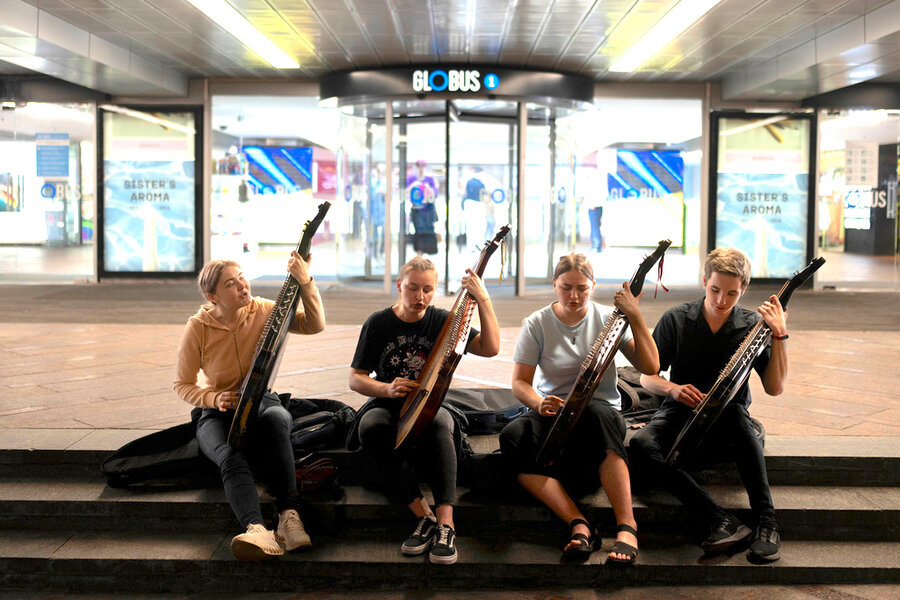Glory to Ukraine’s cultural muses
Loading...
When Ukraine’s military launched its big counteroffensive in June, it was aimed at entrenched Russian forces. Yet just as critical to Ukraine’s independence is another campaign started last year. It is aimed at challenging one of Russian President Vladimir Putin’s premises for the war: that Ukraine lacks the cultural identity to be an independent state.
Russian forces have destroyed many icons of Ukrainian heritage – religious sites, opera houses, libraries, monuments, and museums. But Ukrainians have also rallied to embrace their pluralistic and rich culture with a newfound national dignity.
“Putin appears not to have grasped that hitting Ukraine’s culture would instead fuel its vitality,” Suzanne Nossel, CEO of PEN America, wrote in Time after visiting the country.
Ukraine’s initial response was to “de-Russify” much of its Russian and Soviet past. Many Russian speakers have learned Ukrainian. Soviet-era public symbols have been torn down. On July 28, President Volodymyr Zelenskyy signed a law moving the Christmas holiday to Dec. 25 from Jan. 7, the day the Russian Orthodox Church observes it. An explanation of the law cites Ukrainians’ “relentless, successful struggle for their identity” and “the desire of all Ukrainians to live their lives with their own traditions, holidays.”
People also have emphasized qualities that mark Ukrainian life. Concerts and shows by Ukrainian artists are often sold out. Petty bribery has dropped as Ukrainians demand honesty in government. A fashion brand now touts the slogan “Bravery Is Ukraine’s Brand.” With foreign help, Ukraine’s museums have moved their collections to safe places while ensuring the artworks are available to inspire people.
“The strength of Ukraine’s resistance has depended less on the military assistance provided by NATO members than on the Ukrainian people’s insistence on their own agency and destiny,” wrote Yuriy Gorodnichenko, a professor at the University of California, Berkeley, and Ilona Sologoub, editor of VoxUkraine, for Project Syndicate.
Ukraine’s spirit of independence shines not only in its military efforts but also in its cultural revival. Or, as journalist James Meek wrote in the London Review of Books, “One of the most striking things about Kyiv this summer is the freedom with which people are imagining, and in some cases already making, their own future.”





